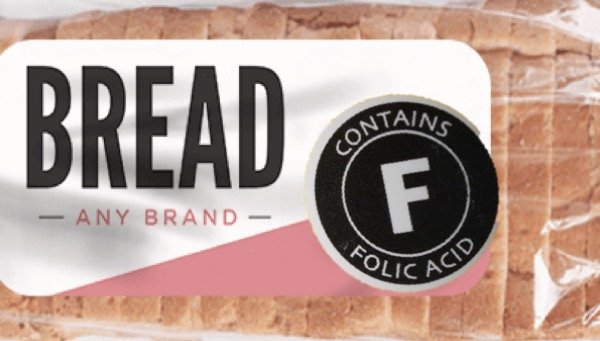Over the last few weeks we have had a number of enquiries from customers about the addition of folic acid to flour. As you will probably be aware, legislation has now been implemented adding folic acid to flour along with the other fortificants required under the Bread & Flour Regulations 1998. As I explain below, the Priors Flour is now entirely free of additives, including folic acid.

Since the 1940s, the UK Bread & Flour Regulations have existed to require flours to contain minimum amounts of essential vitamins and minerals for the protection of human health. In practice, this has meant that non-wholemeal flours have been fortified with a very small amount of additives including calcium carbonate, iron, thiamin (vitamin B1), and niacin (vitamin B3). Whilst there has been significant debate about the effectiveness of these additives, and many of us would have preferred not to have had to add them to flour, this has been the law and the Priors Flour has worked to meet its obligations in this regard.
This has always been challenging for traditional mills (wind and watermills) because the production process does not lend itself to the uniform addition of tiny amounts of fortificant. The uneven “dosing” which traditional mills typically achieved using the basic machinery available (adding the fortificant during the flour sieving process) presented no risks / issues to health. However, when successive governments (since the 1990s) made clear their desire to fortify flour with folic acid, this became a major issue for traditional mills.
Millers are not medics, so along with other members of the Traditional Cornmillers Guild, we have always acknowledged that we cannot comment on the efficacy of fortifying flour as a route to reducing the number of neural tube defects in unborn babies – a key aspiration of the drive for mandatory fortification of flour with folic acid.
What we did recognise, with authority, was that the traditional milling process could not be either adapted or used to dose flour uniformly and as a result, there was a significant risk if traditional mills were required to fortify flour with folic acid. Put simply, traditional mills would have had to stop milling certain flours for human consumption, putting their future viability at serious risk.
As Chairman of the Traditional Cornmillers Guild, I led a campaign over 15 years to raise awareness of these issues, working with a team and latterly with other organisations such as the Real Bread Campaign to engage with DEFRA and the Department for Health. I am pleased to say that with support from politicians and members of the House of Lords our voices were increasingly heard and were were invited to join a working group set up by DEFRA to explore fortification of flour with folic acid.
As a result of this work and the subsequent consultations that followed, an exemption was agreed meaning that “small mills” (producing less than 500 tonnes of non-wholemeal flours) would not only be exempted from the requirement to add folic acid, but also exempted from adding the other additivies required under the Bread & Flour Regulations. This wider exemption was necessary because it was not financially viable for the company that produces the cocktail of additives added to flour to produce a variation of the product without folic acid, small mills using such a tiny amount when compared to the commercial roller mills in the UK.
It was concluded that given the tiny proportion of flour produced by “small mills”, this would have no material effect on the overall health benefits afforded by fortifying flour.
As I stated above, we as a business have always worked to meet what is required in law. Our personal preference has always been to supply unadulterated flour. Happily, that preference has now been made a reality as the law has now changed, as I have explained.
Please note – whilst our labels have now been updated, we still have a stock of pre-printed 1.5kg white flour bags which include the fortificants on the ingredients label. We cannot afford to “trash” all these bags (nor believe that environmentally , so will use up the stock of bags before ordering new ones with the fortificant information removed.
Happy Baking – if you need to ‘top up’ your flour stocks – follow the link!
